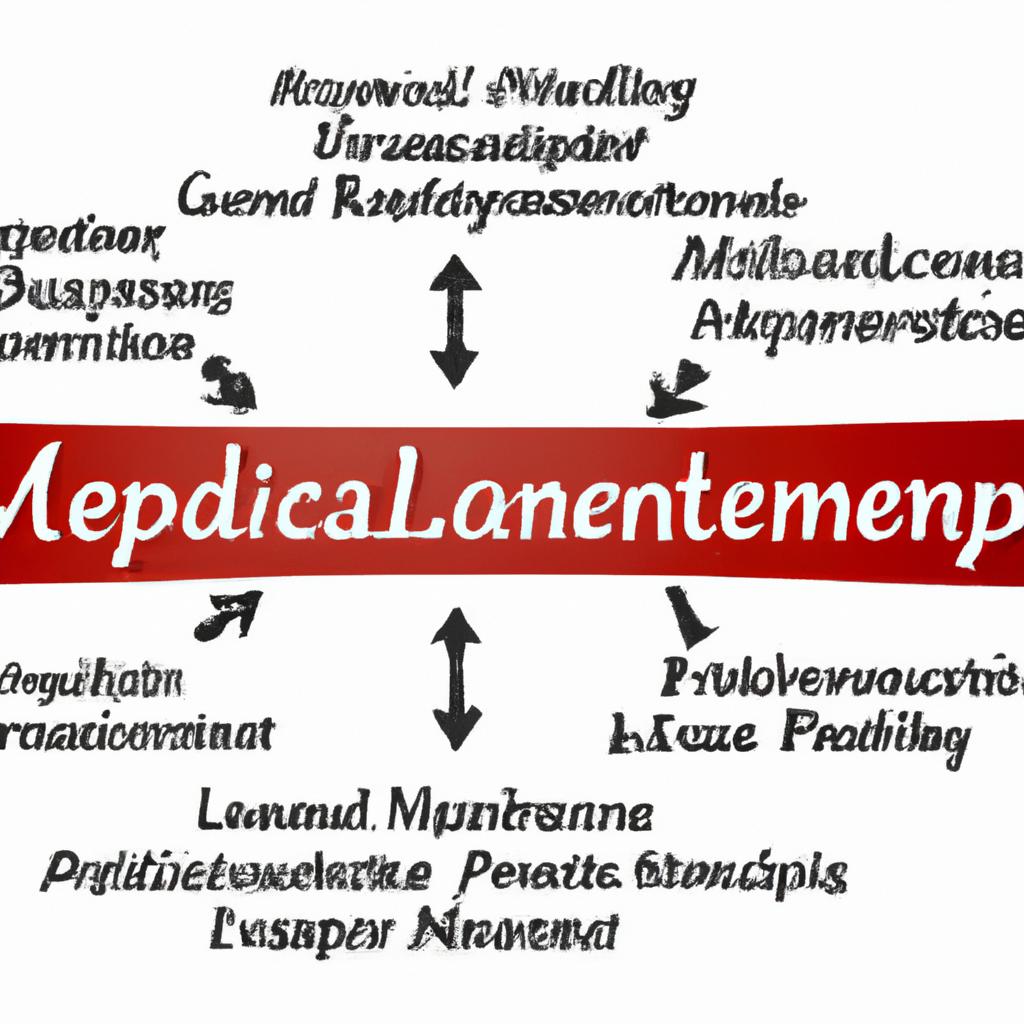As seasoned professionals in estate planning and elder law, the team at Morgan Legal Group understands the importance of protecting one’s assets and property. In today’s article, we will delve into the important topic of safeguarding your home from the potential threat of nursing home costs. By implementing the right strategies and legal instruments, you can ensure that your cherished residence remains safe and secure. Join us as we explore the essential steps to shield your house from the reach of nursing home expenses.
Ensuring Proper Estate Planning to Safeguard Your Home
When it comes to protecting your home from being used to pay for nursing home costs, proper estate planning is crucial. There are several strategies that can help safeguard your home and ensure that it remains in your family’s possession.
One effective way to protect your house is by establishing a trust. By placing your home in a trust, you can designate who will inherit the property after your passing and prevent it from being used to cover nursing home expenses. Additionally, considering Medicaid planning can also be beneficial in securing your home. By working with an experienced attorney, you can navigate the complex Medicaid rules and develop a plan that safeguards your assets, including your home.

Utilizing Trusts to Secure Your Property from Nursing Home Costs
When it comes to protecting your property from nursing home costs, utilizing trusts can be a powerful tool. Trusts allow you to retain control of your assets while also safeguarding them from being used for nursing home expenses. One popular option is a revocable living trust, which allows you to transfer ownership of your property to the trust while still maintaining the ability to make changes or revoke it if needed.
Another effective strategy is an irrevocable trust, which permanently transfers ownership of your property to the trust, protecting it from nursing home costs. This type of trust can also help you qualify for Medicaid benefits by reducing your countable assets. By working with experienced estate planning attorneys like Morgan Legal Group, you can create a customized trust plan that suits your needs and protects your property from nursing home expenses.

Understanding Medicaid Planning for Long-Term Care Protection
One effective strategy for protecting your house from being counted as an asset when applying for Medicaid benefits for long-term care is to transfer ownership of the house to an irrevocable trust. By doing so, you are essentially removing the house from your ownership, which can help in qualifying for Medicaid without having the house counted as an available asset. However, this process must be done carefully and with proper legal guidance to ensure compliance with Medicaid rules and regulations.
Another option to protect your house from nursing home costs is to consider purchasing long-term care insurance. This type of insurance can help cover the costs of nursing home care and other long-term care services, allowing you to preserve your assets, including your house, for your beneficiaries. Consulting with an experienced elder law attorney can help you explore all available options and create a solid Medicaid planning strategy tailored to your specific needs and circumstances.

Consulting with Elder Law Attorneys for Comprehensive Asset Protection
Elder law attorneys are essential when it comes to comprehensive asset protection, especially when it involves safeguarding your home from nursing home costs. By consulting with experienced attorneys, you can receive expert guidance on the best strategies to protect your house and other assets from potential long-term care expenses.
During a consultation with elder law attorneys, you can explore options such as creating a trust, transferring ownership of your home, or utilizing Medicaid planning techniques to shield your property from nursing home liens. These professionals can help you navigate complex legal issues and ensure that your assets are safeguarded for future generations. Don’t wait until it’s too late to protect your home - consult with elder law attorneys today for peace of mind and security.
Q&A
Q: What are some common ways to protect your house from being taken by a nursing home?
A: There are several strategies you can employ to safeguard your home, such as setting up a trust or transferring ownership to a family member.
Q: Is it possible to protect your house from nursing home costs without giving it away?
A: Yes, there are legal tools available, like long-term care insurance or Medicaid planning, that can help protect your home without having to relinquish ownership.
Q: How can a living trust help protect your house from being seized by a nursing home?
A: A living trust allows you to transfer ownership of your home to a trustee, who can manage it on your behalf. This can help shield your home from being counted as an asset for Medicaid eligibility.
Q: What should you consider before transferring ownership of your house to a family member?
A: It’s important to consult with a legal professional before making any decisions about transferring ownership, as there may be tax implications or other legal considerations to take into account.
Q: Are there any drawbacks to using long-term care insurance to protect your house from nursing home costs?
A: While long-term care insurance can help cover nursing home expenses, it may not cover all costs and premiums can be expensive. It’s essential to weigh the pros and cons before purchasing a policy.
Key Takeaways
In conclusion, safeguarding your home from the threat of nursing home placement is a crucial step in preserving your independence and security. By implementing proactive measures such as investing in home modifications, creating a solid support network, and exploring alternative care options, you can empower yourself to age in place with confidence and dignity. Remember, your home is more than just a physical space—it’s a sanctuary that should be protected and cherished for years to come. So, take charge of your future and take the necessary steps to ensure that your house remains a place of comfort and sanctuary for as long as possible. With the right strategies in place, you can rest easy knowing that your home will always be a place where you can thrive and flourish, no matter what challenges may come your way.
 As we age, it’s natural to start thinking about the future and making plans for our senior years. One common concern among older adults is the possibility of needing to move into a nursing home. While these facilities can provide excellent care for individuals who are no longer able to live independently, the thought of leaving one’s own home and belongings can be daunting. But with proper planning and precautions, it is possible to protect your house from the potential financial and emotional impact of a nursing home stay. In this article, we will discuss some practical tips and strategies for safeguarding your house and assets while transitioning to a nursing home.
As we age, it’s natural to start thinking about the future and making plans for our senior years. One common concern among older adults is the possibility of needing to move into a nursing home. While these facilities can provide excellent care for individuals who are no longer able to live independently, the thought of leaving one’s own home and belongings can be daunting. But with proper planning and precautions, it is possible to protect your house from the potential financial and emotional impact of a nursing home stay. In this article, we will discuss some practical tips and strategies for safeguarding your house and assets while transitioning to a nursing home.
Understanding the Financial Risks
Before diving into ways to protect your house, it is important to understand why it is necessary to do so. One of the biggest concerns for individuals entering a nursing home is the cost. According to the Genworth Cost of Care Survey, the national median cost for a private nursing home room in 2020 was $8,821 per month. That adds up to almost $106,000 per year, and these costs are only expected to continue rising. Without proper planning, this can quickly deplete your assets and leave you with little to no inheritance for your loved ones.
Another risk is the potential loss of your home itself. In some cases, Medicaid may be used to cover nursing home costs, but only after your assets have been depleted to a certain level. This means that your house may need to be sold to cover the expenses. However, with the right strategies in place, it is possible to protect your house from these risks and ensure it remains a valuable asset for future generations.
Plan Early
When it comes to protecting your house from a nursing home, the earlier you start, the better. It is recommended to start planning at least five years before entering a nursing home to have the most effective protection. However, even if you are already in a nursing home or anticipate entering one soon, there are still ways to protect your house and assets.
1. Create a Trust
One of the most effective ways to protect your house is by placing it in a trust. This trust can be irrevocable, meaning it cannot be changed once established, or revocable, allowing for changes to be made if necessary. The trust must be created at least five years before entering a nursing home to be considered a valid asset protection strategy. By doing this, the ownership of the house is transferred to the trust and therefore no longer considered as part of your personal assets.
2. Transfer Ownership
Another option is to transfer ownership of your house to a trusted family member or friend. This can be done as a gift or for a nominal fee. Again, this must be done at least five years before entering a nursing home to avoid potential penalties. It is important to note that this option may jeopardize your eligibility for Medicaid, as the government may view this transfer as a way to hide assets.
3. Purchase Long-Term Care Insurance
Long-term care insurance can be a valuable investment for protecting your house and assets. This insurance covers the costs of assisted living, nursing home care, and other services not covered by Medicare. By having this insurance in place, you can ensure that these expenses do not deplete your assets and leave your house vulnerable.
4. Utilize Homestead Exemptions
Depending on your state’s laws, you may be able to take advantage of homestead exemptions to protect your house from creditors. These exemptions prevent your primary residence from being seized to pay debts or expenses related to a nursing home stay. It is important to consult with an attorney familiar with the laws in your state to determine if this is a viable option for you.
5. Consider a Reverse Mortgage
A reverse mortgage allows individuals over the age of 62 to borrow against the equity in their home. This can provide a source of income to cover nursing home costs while allowing you to continue living in your home. However, it is important to fully understand the terms and implications of a reverse mortgage before making this decision.
Final Thoughts
As we age, it is crucial to have a plan in place to protect our assets and homes from the financial risks associated with a nursing home stay. By planning early and utilizing strategies such as creating a trust, transferring ownership, purchasing long-term care insurance, and understanding homestead exemptions and reverse mortgages, you can safeguard your house and ensure it remains a valuable asset for your family. It is always advisable to seek the guidance of a financial advisor or attorney to determine the best strategies for your individual situation. With proper planning and protection, you can rest assured that your house and assets will be secure while you enjoy the care and peace of mind that a nursing home can provide.






